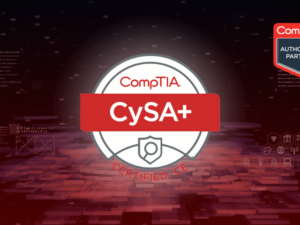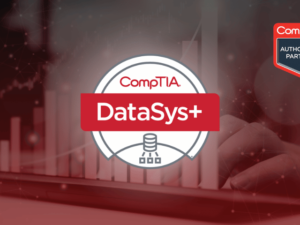Certified Kubernetes Security Specialist (CKS)
- Description
- Reviews

CERTIFIED KUBERNETES SECURITY SPECIALIST (CKS)
COURSE DESCRIPTION
The Certified Kubernetes Security Specialist (CKS) program provides assurance that a CKS has the skills, knowledge, and competence on a broad range of best practices for securing container-based applications and Kubernetes platforms during build, deployment, and runtime. CKA certification is required to sit for this exam.
CKS is a performance-based certification exam that tests candidates’ knowledge of Kubernetes and cloud security in a simulated, real world environment. Candidates must have taken and passed the Certified Kubernetes Administrator (CKA) exam prior to attempting the CKS exam. CKS may be purchased but not scheduled until CKA certification has been achieved.CKA Certification must be active (non-expired) on the date the CKS exam (including Retakes) is scheduled.
WHAT IT DEMONSTRATES
Obtaining a CKS demonstrates a candidate possesses the requisite abilities to secure container-based applications and Kubernetes platforms during build, deployment, and runtime, and is qualified to perform these tasks in a professional setting.
WHO IS IT FOR
A Certified Kubernetes Security Specialist (CKS) is an accomplished Kubernetes practitioner (must be CKA certified) who has demonstrated competence on a broad range of best practices for securing container-based applications and Kubernetes platforms during build, deployment, and runtime.
PREREQUISITES
Active (non-expired) CKA certification is a prerequisite for this exam.
COURSE OUTLINE
- Cluster Setup – 10%
- Use Network security policies to restrict cluster level access
- Use CIS benchmark to review the security configuration of Kubernetes components (etcd, kubelet, kubedns, kubeapi)
- Properly set up Ingress objects with security control
- Protect node metadata and endpoints
- Minimize use of, and access to, GUI elements
- Verify platform binaries before deploying
- Cluster Hardening – 15%
- Restrict access to Kubernetes API
- Use Role Based Access Controls to minimize exposure
- Exercise caution in using service accounts e.g. disable defaults, minimize permissions on newly created ones
- Update Kubernetes frequently
- System Hardening – 15%
- Minimize host OS footprint (reduce attack surface)
- Minimize IAM roles
- Minimize external access to the network
- Appropriately use kernel hardening tools such as AppArmor, seccomp
- Minimize Microservice Vulnerabilities – 20%
- Setup appropriate OS level security domains
- Manage Kubernetes secrets
- Use container runtime sandboxes in multi-tenant environments (e.g. gvisor, kata containers)
- Implement pod to pod encryption by use of Mtls
- Supply Chain Security – 20%
- Minimize base image footprint
- Secure your supply chain: whitelist allowed registries, sign and validate images
- Use static analysis of user workloads (e.g.Kubernetes resources, Docker files)
- Scan images for known vulnerabilities
- Monitoring, Logging and Runtime Security – 20%
- Perform behavioral analytics of syscall process and file activities at the host and container level to detect malicious activities
- Detect threats within physical infrastructure, apps, networks, data, users and workloads
- Detect all phases of attack regardless where it occurs and how it spreads
- Perform deep analytical investigation and identification of bad actors within environment
- Ensure immutability of containers at runtime
- Use Audit Logs to monitor access
Please contact us for the full course outline, schedules and for booking a private class.
Request a Quote
Popular Courses
Archive
Working hours
| Monday | 9:00 am - 6.00 pm |
| Tuesday | 9:00 am - 6.00 pm |
| Wednesday | 9:00 am - 6.00 pm |
| Thursday | 9:00 am - 6.00 pm |
| Friday | 9:00 am - 6.00 pm |
| Saturday | Closed |
| Sunday | Closed |











